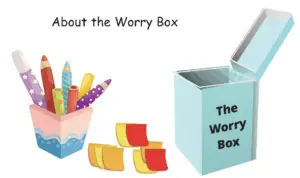Good judgment comes from experience, and experience comes from bad judgment.” A. A. Milne
“We should not judge people by their peak of excellence; but by the distance they have traveled from the point where they started.” Henry Ward Beecher
“If you didn’t grow up like I did then you don’t know, and if you don’t know it’s probably better you don’t judge.” Junot Díaz
“Can you look without the voice in your head commenting, drawing conclusions, comparing, or trying to figure something out?” Eckhart Tolle
We are all guilty at times of making judgments. It sounds simple enough when we are occupied with choosing paint colors styles of clothing or what we want to do, read, accomplish, or study. We feel justified in making all sorts of judgments, especially about people and situations. So what is the problem? Why worry about our judgments of people and situations? Is it harming anyone? The answers are that it does harm people, many issues arise from our uninformed judgments, we cause lots of problems for others and ourselves, and we test the patience of friends’ family and co-workers. The trouble that gets stirred up many times results in major or minor fallouts.
Reflecting on the reasons we need to judge is a conflicted task that many of us do not engage in. Our judgments are based on questionable information. The golden rule of thinking before speaking has been ignored in preference of “truth” as we perceive it, and that is the key. What we might understand as truth is not what another believes is honesty. Our opinions differ, and we can debate until the morrow who is more or less correct and never agree on the answer. Is it boiling down to allowing judgments to fall away? Is it time to rethink what we thought was working? Is it working when it suits our needs and desires? Do judgments appear to be elusive and up to the person doing the assessments?
Judgments were off base
I am one of the most opinionated people I know, and I am aware of how many times my judgments were off base or biased or self-promoting. I am not sure now if anyone or anything can deliver an unbiased opinion. Once we announce a ruling on a person’s object or idea, we maintain the ruling. We make poor rulings but never go back to correct it or acknowledge it. What we perceive as the truth can change on any given day. We use the excuses of people’s things, or circumstances change but is that the whole truth?
I see it more as not having all of the facts on any given day or time. The facts change, which hardly makes them facts. We don’t have all of the information on any person’s place or thing to form opinions, yet we do it anyway. Kids are one group of individuals we rule on and sometimes make difficult for kids to break out of their assigned molds. We group them and observe our false proofs and ignore any truths that differ from our thoughts. Making mistakes is part of living is discovering the world and forming deductions. Do we remember how once people thought the world was round? As we gain more knowledge, our ideas and opinions change. Our ideas are painted with different strokes. Kids grow and discover why some things may not be right, fair, or appropriate. I always used to say you can’t teach algebra to a kindergartener, but when the kindergartener grows up, you can.
Maybe that is how God sees us. We are immature in his eyes, and we need time to grow to experience the world and accept why there is good bad or indifferent. God does not judge. He just gives us time to explore and understand what is not obvious or simple to see. Do you get tired of listening to those people who tell you I did this or that or I would do this and would never do that? I remember thinking one day that if my kids were starving, I would steal if I had to feed them. Unless we have been there or done that we can’t say what we would think or do. If we were never poor, we can’t know what that feels like. We can’t all know what it is like to be rich if that has never been the case.
Refraining from judgments
I am not promoting the idea of stealing what you need. I am supporting the idea of refraining from judgments. Showing a better way to do things or make things happen is essential. I appreciate how some people believe we shouldn’t hand things or money over to the poor. They make a legitimate point for one argument. They worked hard for their earning and didn’t grow up with silver spoons. Others strive and work hard to provide for their families. They are all to be commended. But what if some people don’t know where or how to begin because they are more like our kindergartners looking for guidance. We can judge them, conclude they are not worth the effort and toss them away. The alternative is to think without judgments and find some answers that work for all of us.
The world is a better place for every improvement that is made no matter how small that improvement is. I don’t think throwing money or items at someone necessarily helps as much as taking the time and effort to teach one how to survive and make a living in a complicated world. As teachers work and support their students until they are ready to fly on their own with the knowledge they gain so true is it possible to help anyone in their effort to learn and overcome a difficult situation they may find themselves in.
If we judge them too fast, we ignore them and dislike or hate them. My grandmother always said, “There, but for the grace of God go I.” There is truth in that statement. Have you ever grabbed your child before they took a serious fall or ran out into the street or cut themselves with a sharp object or stuck something into an electric socket? You make a loud sigh of relief, but some parents were not fortunate enough to save their children from the disaster. We feel safe believing that we would do the right thing so that something terrible didn’t happen to them. We grow up when we recognize there is no right or wrong as much as there is learning beyond what we know. There are days we are tired, not thinking, busily distracted. These are not excuses, but facts we may not be privy to about why an incident happened.
No judgments just answers
Some people get the lesson sooner, some take time, and some don’t care, but it is important to ask why. We could trade the judgments for answers to why did or what is the reason for the actions. No judgments just answers, and solutions are found. We are not pushed above another person because we did a better job or won something. Destroying others with our weak judgments keeps us at the kindergarten level. Mature individuals, no matter what the age, treat others with respect and love. We recognize that they are working on their own learning, and we have no idea how far they have come nor where it is they are striving to go. By spending so much time judging others we leave little time to take an honest look at ourselves. The person we are busy assessing is striving to move forward while we are stagnant in our comfortable moment in time, but there is always something new to understand and someone new to love and support. Whenever we strongly believe we are in the right, that is when we should step back and stop the judgments immediately.
On the other side are people who expect to be immediately understood. That is not forthcoming without thought and reason. It takes time for all of us to learn we are or should be working together to see the other side and cope with all thoughts again to find answers, not guilt or blame. Until we get out of that mode of blame guilt jealousy and fault, we leave little room for growth. There is truth found on both sides of an argument if we honestly look at it. Dump the judgments from your mind, and you can move your mind faster towards greater understanding and healing.
“Whoever undertakes to set himself up as a judge of Truth and Knowledge is shipwrecked by the laughter of the gods.” Edmund Burke
“I shall tell you a great secret my friend. Do not wait for the last judgment, it takes place every day.” Albert Camus
“My request today is simple. Today. Tomorrow. Next week. Find somebody, anybody, that’s different than you. Somebody that has made you feel ill-will or even hateful. Somebody whose life decisions have made you uncomfortable. Somebody who practices a different religion than you do. Somebody who has been lost to addiction. Somebody with a criminal past. Somebody who dresses “below” you. Somebody with disabilities. Somebody who lives an alternative lifestyle. Somebody without a home. Somebody that you, until now, would always avoid, always look down on, and always be disgusted by. Reach your arm out and put it around them. And then, tell them they’re all right. Tell them they have a friend. Tell them you love them. If you or I wanna make a change in this world, that’s where we’re gonna be able to do it. That’s where we’ll start. Every. Single. Time.” Dan Pearce


